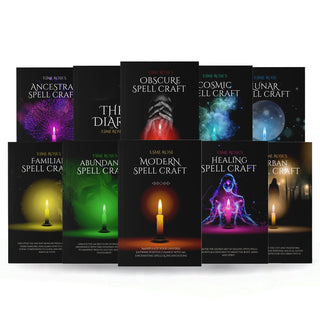Today we're venturing into a corner of spellcraft that's often cloaked in whispers and wary glances — hexes.
Now, I want us to chat about this like we're sitting in my cozy kitchen, sipping some herbal brew, because understanding the nature of hexing is as important as the spell itself.
Hexes, are potent stuff. They're the kind of magic you ponder when someone's truly ruffled your feathers, and you're left with a storm cloud overhead. But before we start searching how to hex someone, let's take a breath. In our craft, we weave with care, knowing that each thread tugs on many others.
When the thought of hexing crosses your mind, it's like a shadow passing over — it's there, it's real, but should we step into it? I always say, "Tread with care." The path of a hex is thorny, and it asks of you to consider your true intentions. Are you seeking justice, protection, or something else? Let's not act on impulse. Instead, let's approach this with the wisdom of the old trees and the patience of the stones.
If, and only if, you find yourself at a crossroads where hexing seems like the only signpost, then we approach with reverence and a clear conscience. It's about finding resolution, not revenge. You'll want something to focus your intent, something that represents your cause — but let's keep it symbolic and harm none.
And here's the heart of it: remember that magic mirrors the caster. When you send out a hex, you're opening a book whose pages will reflect back on your own story. So, we must ask, "What tale do I wish to tell?"
Let's chat about the practical bits — if you're going to walk this path, you'll need a clear vision, a representation of the issue, and a firm resolve. Choose your words and your symbols with the care you'd choose the seeds for your garden, for they will grow in ways seen and unseen.
And after all is said and done, let's not forget that for every hex cast, a door opens for learning and growth — not just for the one who feels the spell's touch, but for the witch who cast it.










